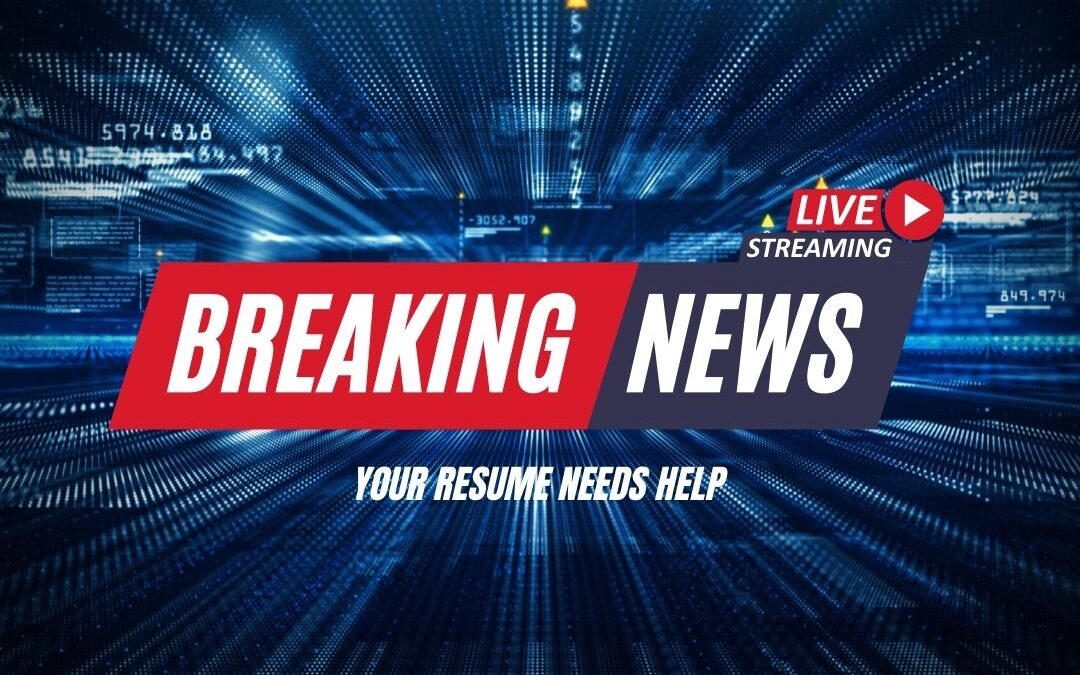If you’re writing a resume that highlights a career in television news, make sure it includes vital information. One thing I always hear is that “it’s the tape that really matters.” True, News Directors do want to see how you perform in the anchor chair, on breaking news, and live shots, as well as your editing skills for packages and VO/SOTs.
But there are things the tape doesn’t reveal, and that information needs to be included on the resume. Too many times, I see broadcast journalist/MMJ Resumes that are downright awful. Writing for television news is quite different from writing a resume. You have to understand how recruiters read resumes and what they look for.
What to Include:
Before you sit down to write your resume, take stock of your background, and answer the following questions.
1. What is the market size you are in now, as well as previous positions?
2. Did you cover stories of national significance that were picked up by the network? Have you done network live shots?
3. What time slots do you normally contribute stories? How many people are watching? How does your station measure up in the ratings?
4. What makes you a great reporter? Are you also an MMJ?
5. Do you know your Q Score?
6. Do you do public appearances on behalf of the station, either as a speaker or emcee at fundraisers, pageants, or awards events?
7. Do you mentor students or interns?
8. Do you have specialized knowledge in politics, business reporting, education, healthcare, or other topics?
9. Are you bilingual?
10. Are you an upstanding member of the community?
11. What do you know about the area you are applying to?
12. Have you won any significant awards, like a Peabody, AP, or Emmy?
13. What type of software are you proficient with? How about digital editors?
Do’s and Don’ts
Don’t bury the LEDE! Just like in reporting for the news, how you format your resume matters. Too many times I see important information buried somewhere on page two, and it never gets read.
Don’t copy sample phrases, or plagiarize someone else’s resume. You’re in the business of being original, so that means no AI or copying jargon. Believe me, I’ve seen my work copied. I bet News Directors are tired of seeing those same sentences over and over again. Plagiarism is a no-no in journalism.
Learning the rules takes some time, as writing a resume is vastly different than a two-minute package. With broadcasting, when you know the rules of how to write it, it comes off as professional and easy to understand.
It should be no different with your resume.
————————————
Susan Geary is a Master Resume Writer and former TV News Manager and Producer. With 5 certifications, she’s been writing resumes professionally since 2000. Long considered the industry expert for broadcast resumes, every document is custom written, just like the stories her clients write for their newscast.

